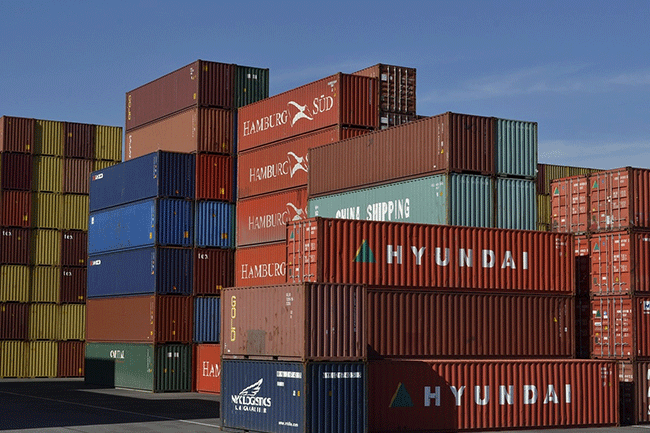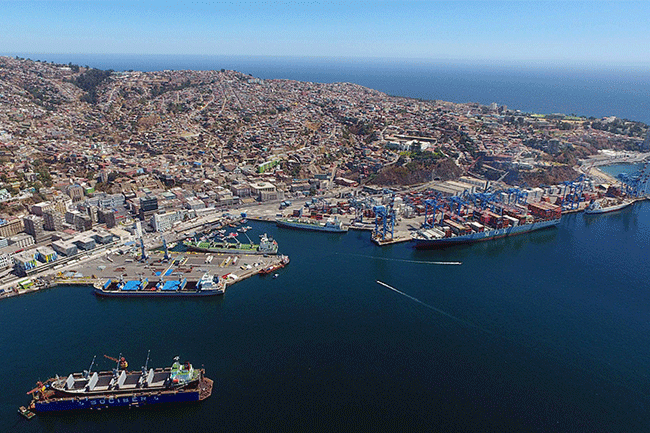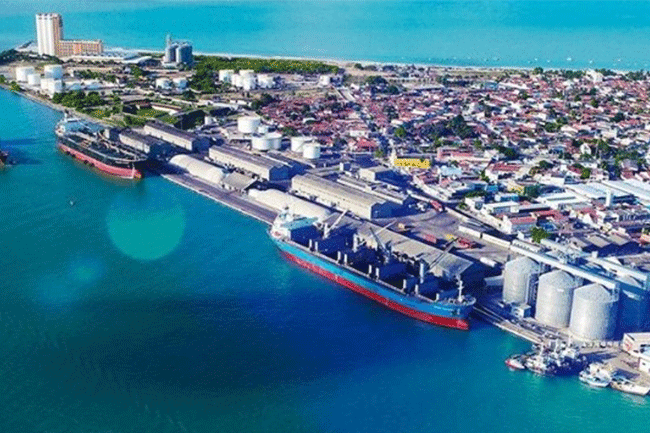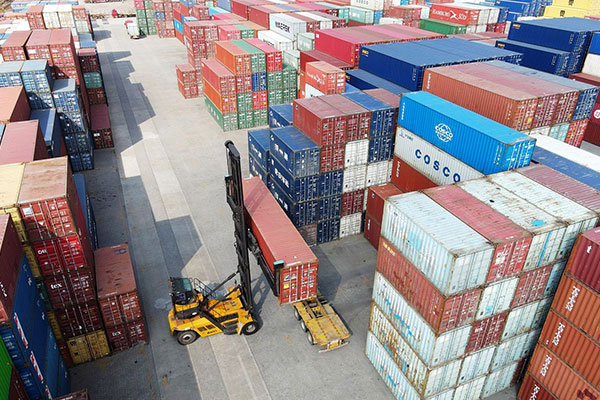- Shanghai Zhongshen International Trading Co., Ltd. – Your reliable partner with 20 years of import/export agency service expertise.

I. Market Opportunities and Trade Situation of Japanese Coffee Powder Imports
In recent years, China's coffee consumption market has expanded rapidly at a compound annual growth rate of 12%, with surging demand for freshly ground coffee, ready-to-drink coffee, and premium instant coffee. Japan, with its advanced roasting technology, strict quality control (such as the JAS standard), and stable supply chain, has become an important source of coffee powder imports for China. In 2023, two years after the RCEP came into effect, more than 90% of China-Japan trade in goods gradually achieved zero tariffs (e.g., the MFN tariff rate for HS 09012200 coffee powder dropped from 15% to 12%), coupled with declining cross-border logistics costs, creating a golden window of opportunity for Japanese coffee powder imports.
II. Full-process agency services: from demand matching to key delivery points
As a professionalImport Agent ServicesFor service providers, we break down the process into nine major stages and focus on strengthening the full-cycle control of documents and logistics:
1. Client Consultation & Demand Confirmation
Through questionnaire surveys (HS code, annual import volume, target ports, quality requirements) and on-site communication, we clarify the scope of agency services (whether it includes foreign exchange payments and whether it involves third-party inspections). For example, a client of a coffee chain brand needs to import decaffeinated coffee powder. We need to confirm in advance whether it meets the pollutant limit requirements of China's "National Food Safety Standards" (GB 2762-2017).
2. Contract negotiation and clause review
Lead the signing of the "Agency Import Agreement" between the buyer and the seller, with a focus on reviewing the payment method (L/C 90 days vs. T/T 30% prepayment), the quality claim period (it is recommended that the inspection be conducted within 15 working days after the goods arrive at the port), and the dispute resolution clause (choosing the China International Economic and Trade Arbitration Commission is more favorable for local enterprises). We once assisted a client in circumventing the unreasonable requirement of the Japanese side that "only D/P at sight is acceptable" and switched to L/C instead.?Forex Settlement?Risks.
3. Order execution and payment arrangements
Open an account according to the contract?L/C?(It is necessary to specify the specific requirements for "document conformity", such as the health certificate must be issued by the Japanese Ministry of Agriculture, Forestry and Fisheries), or complete the T/T payment through an agent's account. In the re-export business to Russia, we rely on VTB Bank (Russia).foreign tradeThe cross-border settlement network of the bank can circumvent the restrictions of the SWIFT system, enable direct ruble-renminbi exchange, and shorten the settlement time to 2-3 working days.
4. Production supervision and third-party inspection
In collaboration with the client, we designated SGS or the Japan Food Research Laboratories (JFRL) to conduct a _factory inspection_ (factory audit), with a focus on verifying the traceability of raw materials (the country of origin of the coffee beans), roasting temperatures (recommended 180-220℃), and packaging sealing (which must meet requirements for moisture and odor resistance). We once discovered that the moisture content of a batch of coffee powder exceeded the standard (4.5% vs the contractual requirement of ≤3%), and promptly requested the Japanese side to rework the product to avoid being returned by customs upon arrival at the port.
5. Logistics solution design and document preparation
- Selection of transportation methodsFor regular orders, we useMaritime transportLCL/FCL container shipping from Kobe Port to Shanghai Yangshan Port, with a transit time of 7-10 days and a cost of approximately $800 per cubic meter. Urgent orders are highly recommended.Air freight(From Narita Airport to Pudong Airport), delivery within 48 hours, with a cost of approximately 12 yuan per kilogram.
- Core document listIt is necessary to collect the following documents provided by the Japanese side 15 days in advance: _Commercial Invoice_ (commercial invoice), _Packing List_ (packing list), and _Certificate of Origin_ (certificate of origin).Origin CertificateThe required documents include: - An _export license_ (issued by the Japan External Trade Organization (JETRO) and stamped with their official seal) - A _health certificate_ (stating compliance with Article 68 of the Food Sanitation Law) - An _analysis report_ (containing caffeine content and microbiological indicators). The agency team will verify the consistency of the documents (e.g., ensuring that the invoice weight deviates from the bill of lading gross weight by no more than 5%) and translate them into standard Chinese before submitting them to the customs authority.
6. Customs declaration and tax payment
With the qualification of an AEO Advanced Authorized Enterprise, you can enjoy the convenience of "priority inspection and summary taxation". When declaring, you need to accurately fill in the HS code (09012200), the country of origin (Japan), and the use (food processing/retail), and submit the _Registration Number of Overseas Food Production Enterprises_ (which requires customers to complete the registration in the General Administration of Customs Announcement No. 141 system in advance). The tariffs are levied according to the RCEP agreement rates, and the 13% value-added tax can be deducted with the customs payment receipt.
7. Customs clearance, delivery, and quality reinspection
After the goods arrive at the port, the agent team coordinates with the terminal to retrieve the containers (to avoid incurring overdue storage fees) and assists clients in completing the _CIQ inspection_ (customs inspection). In the event of random sampling (with a probability of approximately 15%), the team will follow up on laboratory testing (with a turnaround time of 7-10 working days) to ensure that the results comply with the requirements of GB 31607-2021, "Limitations on Pathogenic Bacteria in Bulk Ready-to-Eat Foods". After passing inspection, the goods will be arranged for land transportation and delivery to the client's warehouse (with nationwide distribution support and GPS real-time tracking provided).
8. Handling and Feedback on Quality Issues
If any damage to the goods is discovered after arrival at the port (such as moisture absorption due to damaged packaging), the agency team will assist clients in claiming compensation from the insurance company (under an _All Risks_ insurance policy) and simultaneously negotiate with the Japanese party about replenishment or deductions. A client once encountered a situation where 500kg of coffee powder was damaged due to water seepage into the container during maritime transportation. Through the _Short Form B/L_ (abbreviated bill of lading), we quickly identified the responsible party and initiated the claims process within 48 hours, recovering a total loss of 80,000 yuan.
9. Business summary and archival retention
Provide the "Import Agency Services Report" (including logistics efficiency, customs clearance costs, and compliance scores for documents), and retain trade documents (contracts, invoices, bills of lading) for three years as required by the customs for reference.
III. Certification Notes: Preparatory work that clients need to complete on their own
Please note: Our company does not directly provide product certification services, but the following steps require customers to plan in advance:
- Registration of overseas production enterprisesJapanese coffee powder producers need to complete the registration through the "Imported Food Overseas Production Enterprise Registration Management System" of the General Administration of Customs (the registration number format is JPN+6 digits), and the registration period is about 3-6 months.
- Label filing/record filingPrepackaged coffee powder must comply with GB 7718-2011, "General Guidelines for the Labeling of Prepackaged Foods", and a Chinese label (including ingredients, production date, and storage conditions) must be designed in advance. The product must also pass the "Imported Food Inspection and Quarantine Certificate" issued by the competent authorities before entering the Chinese market.CosmeticsSubmit the "Tag Registration System" for review.
- Special Function DeclarationIf promoting "low-caffeine" or "organic" products, it is necessary to provide official certifications from Japan (such as the JAS organic certification) and functional evaluation reports from relevant Chinese departments.
IV. Risk Warning and the Value of Professional Agents
The main risks of importing Japanese coffee powder include:
- Discrepancy between documents(If the health certificate does not indicate "free of aflatoxin"), the goods will be returned to the sender;
- : Insure against supply chain interruption risks (such as war risks, strike risks), and reserve 10% - 15% safety stock.(Such as port congestion and shipping companies skipping ports) Increase the demurrage fee (about 200 yuan/day/20-foot container);
- Quality disputes(For example, if the caffeine content does not match the contract requirements) There is a lack of third-party verification.
The core value of professional agents lies in: anticipating and avoiding more than 80% of potential risks through over 10 years of experience in Japan-related operations; leveraging long-term cooperation with Sinotrans and Cosco Shipping to secure the most competitive freight rates (reducing maritime costs by 5-8%); and utilizing AEO customs clearance qualifications to cut customs clearance time by 40% compared to ordinary enterprises (with an average release time of 48 hours).
Conclusion: The import of Japanese coffee powder is a systematic project that requires equal emphasis on both technology and experience. Choosing an agent service provider with capabilities in document processing, logistics control, and trade compliance can help enterprises focus on their core business and achieve the three goals of "reducing costs, increasing efficiency, and avoiding risks".
Related recommendations
? 2025. All Rights Reserved.










